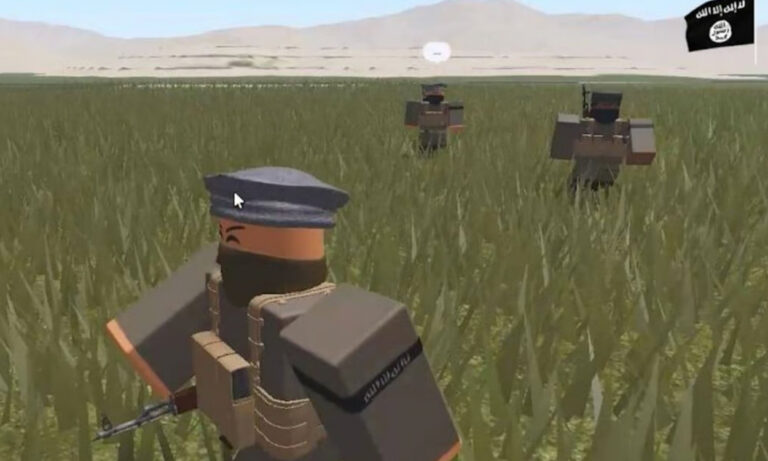How did a 16-year-old boy become radicalised through ISIS-themed Roblox servers?

If you search Roblox on Google, among other queries featured in the search engine’s ‘People also ask’ category, you’ll find one result at the top that reads: “Is Roblox appropriate for a 7-year-old?” Far be it from me to present myself as a gaming expert, but up until today, I would have probably answered this question affirmatively. How naive I was.
To put it simply, Roblox is an online game platform and game creation system that allows users to play creations made by its community. Within these, players can also chat with each other, which I should probably have spotted as the game’s first red flag considering that over half of the platform’s users are under the age of 13. Online unfiltered socialising for underage individuals? Rarely a good thing. But wait, it gets worse.
A 16-year-old Singaporean boy has been detained by the country’s authorities under strict new terror laws after he was found to have been playing on “multiple Islamic State-themed servers on Roblox.” The teenager, who retains his anonymity because of the fact that he’s still a minor, “was issued with a restriction order in January, limiting his movements and preventing him from issuing public statements,” the South China Morning Post (SCMP) reported on Tuesday 21 February 2023.
While the restriction order was issued this year, it wasn’t the first time that the young boy had caught the attention of Singaporean authorities. In November 2020, when he was only 14 years old, the country’s Internal Security Department (ISD) decided to keep a close watch on the boy after it was discovered that he had been spending a worrying amount of time role-playing as an ISIS combatant on Roblox. It seems that his online radicalisation has only escalated over the past two and a half years.
Releasing a statement at the time, the ISD explained that the boy had used the social gaming platform to replicate ISIS conflict zones such as Syria and Marawi city in the southern Philippines, and regarded himself as an ISIS member after taking the ‘bai`ah’ (allegiance) to an in-game “ISIS leader.”
He played out his fantasies on the game, where he would shoot and kill enemies and undertake roles as the “spokesperson” and “chief propagandist” for his virtual ISIS faction, the ISD further revealed in its statement.
Things kept on escalating from there, with Channel News Asia (CNA) reporting that “the teen was also attracted to Islamic eschatological prophecies after watching YouTube videos and had come across Islamic State songs from online music streaming platforms.”
Like countless other young and impressionable individuals online, the boy was found to have “an interest in far-right extremist content, including those which were anti-semitic and supportive of neo-Nazi groups whose ideologies promoted a ‘race war’.”
The boy was also alleged to have been in contact with Muhammad Irfan Danyal Bin Mohamad Nor, an 18-year-old who was arrested in December 2022 under Singapore’s sweeping (and highly controversial) Internal Security Act (ISA) laws, which allow the government to imprison terror suspects for up to two years without trial. Irfan had been planning “to set up an Islamic caliphate on Singapore’s Coney Island.”
Another teenage boy—a 15-year-old who is the youngest person to be held under the country’s new law—has been detained since November 2022 after he was arrested for planning to carry out multiple knife attacks across Singapore.
The ISD also stated that the young boy even thought about beheading non-Muslims in popular tourist areas and becoming a suicide bomber. “At the point of his arrest, the youth was deeply entrenched in his radical views, but had yet to undertake any steps towards actualising his attack ideations,” it added.
According to the SCMP, a total of 11 people under the age of 21 have been punished under the ISA since 2015. Seven were detained and four given restriction orders.





